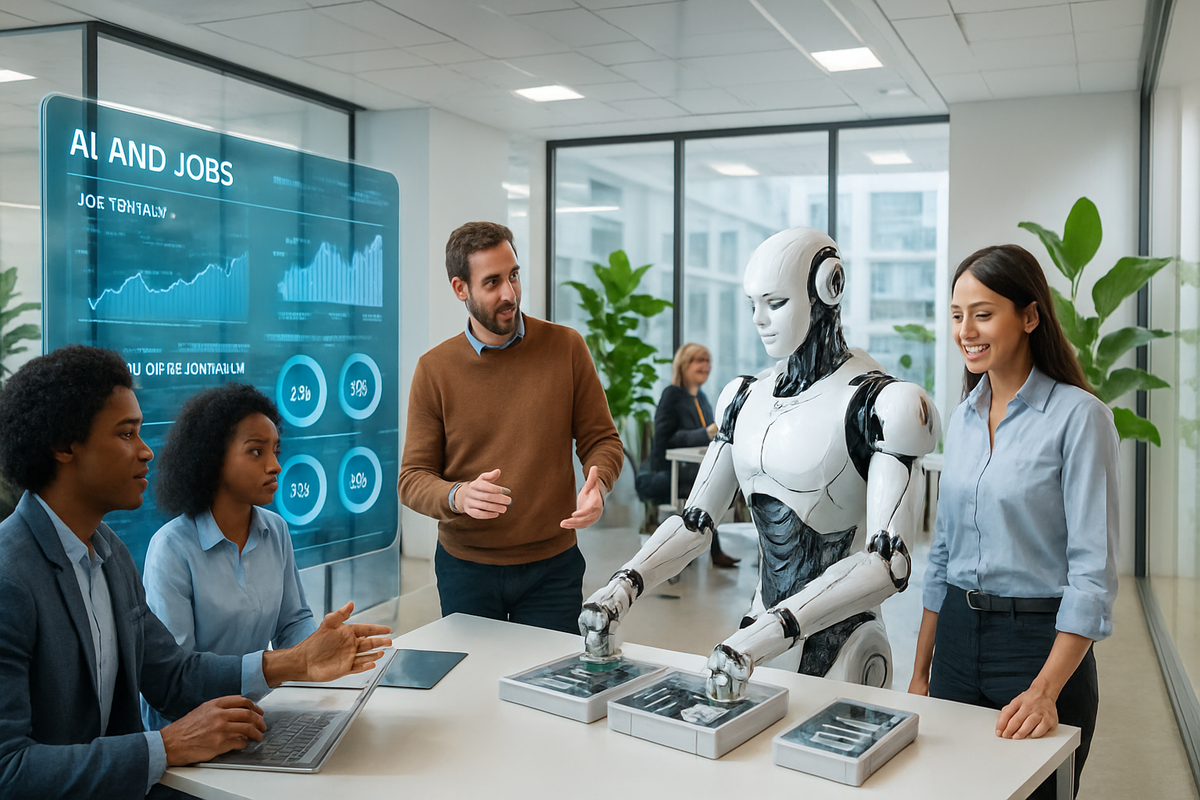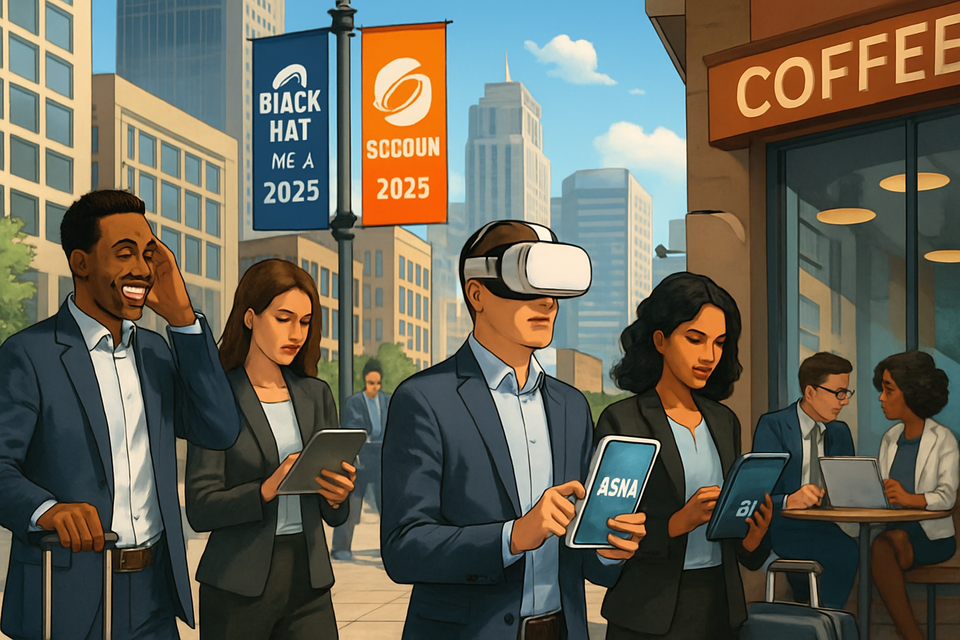The Great AI + Robotics Job Shift: How to Future-Proof Your Skills, Career, and Business in the Age of Intelligent Automation
In 2025, AI isn't just changing jobs—it's creating booming opportunities for those ready to adapt. Amplify your skills, embrace innovation, and thrive in this new era of robot collaboration and creative growth.

Welcome to the Age of Smart Machines—But Is Your Career Ready?
It’s 2025, and the robots are not just coming—they’re already here. AI-powered bots are assembling cars, delivering packages, diagnosing illnesses, and even penning the occasional snappy headline. But here’s the twist: this isn’t the dystopian jobpocalypse you’ve been warned about, nor is it the utopia where we all sip lattes while robots do our chores. The truth is more nuanced, more actionable, and—if you play your cards right—more lucrative than ever.
“Automation is not about replacing humans. It’s about amplifying what we can do—and opening doors to jobs and businesses we haven’t even imagined yet.”
— Dr. Lena Patel, AI & Robotics Researcher, MIT
The Data: What’s Really Happening in the Job Market?
Let’s cut through the hype. Recent studies and market data show:
- Robotics and AI are expected to disrupt at least 1 in 3 jobs globally by 2030—but also create millions of new roles in tech, care, and creative sectors. (Source: Nasdaq, StartUs Insights)
- “Cobots” (collaborative robots) are now on factory floors, hospitals, and even farms, working alongside humans rather than replacing them. (LinkedIn Tech Report, 2025)
- AI-robotics market is growing at nearly 30% per year—and over 900 startups are hiring for brand-new job titles that didn’t exist a decade ago.
Which jobs are most at risk? Which are poised for growth? Let’s break it down:
At-Risk (Automatable)
- Routine manufacturing & assembly
- Basic data entry & processing
- Simple logistics/picking & packing
- Standardized analysis & reporting
Growth (AI-Resilient)
- AI/robotics maintenance & programming
- Healthcare tech & telemedicine
- Creative design & digital content
- Human-centered services & education
- AI ethics, governance, and compliance
Case Studies: Survival (and Success) in the AI-Robotics Revolution
1. Manufacturing: From Wrench to Code
Meet Jae, a former assembly-line worker in Detroit. When his plant brought in autonomous mobile robots (AMRs), he feared redundancy. Instead, he was offered company-sponsored training in robotics programming and now oversees a team of cobots—earning 25% more than before and mentoring others.
2. Healthcare: Nurses & Bots, Side by Side
In Tokyo, hospitals use AI-powered service robots to deliver meds and linens. Far from replacing nurses, these bots free up staff for more patient care—and the hospital now hires “robot facilitators” to coordinate human-bot teams. (Yes, that’s a real job title!)
3. Logistics: The Rise of the Human-Robot Dream Team
At a major e-commerce warehouse in Germany, AMRs handle heavy lifting and route planning, while humans focus on quality checks and problem-solving. The company’s retraining program for “robot wranglers” slashed turnover and boosted productivity by 32%.
4. Creative Fields: Humans + AI = New Artforms
Graphic designer Priya in Bangalore uses generative AI to prototype ad campaigns in minutes—but her value lies in storytelling, branding, and client relationships, which no algorithm can replicate.
Future-Proofing Toolkit: Assess & Upgrade Your Skills
Ready to leap from automation anxiety to opportunity? Here’s your quick-start roadmap:
- Audit your current skills. Are your daily tasks repetitive or creative? Do they require empathy, judgment, or hands-on troubleshooting? (Hint: The more uniquely human, the safer you are!)
- Identify your “AI multiplier”: What tech tools or AI systems could make you 10x more effective in your current job?
- Upskill & reskill: Explore courses in AI literacy, data analysis, robotics, or digital project management—often free or low-cost via major platforms.
- Build a hybrid portfolio: Combine technical savvy with communication, teamwork, and adaptability. The best-paid roles of 2030 will blend tech and soft skills.
- Network in future-forward communities: Join online forums, local meetups, or professional groups focused on AI, robotics, or your industry’s digital transition.
“The winners in the automation era aren’t just coders—they’re connectors, creators, and continuous learners.”
— Ayesha Rahman, CTO, NextGen Robotics
Sector-by-Sector Survival Guide
Manufacturing
- Embrace cobot collaboration: Learn to program, maintain, or supervise robots.
- Cross-train: Expand beyond one task—think problem-solving, quality control, or digital twins.
Logistics & Warehousing
- Master digital inventory and robot management systems.
- Consider certifications in automation logistics or AMR fleet operations.
Healthcare
- Get familiar with telemedicine, health data platforms, and AI-enabled diagnostics.
- Human skills—empathy, communication—are more valuable than ever in patient-facing roles.
Creative & Professional Services
- Use AI as a creative partner, not a competitor.
- Double down on brand storytelling, ethics, and client relationships.
Entrepreneurs & Small Businesses
- Automate the boring stuff: Look for SaaS tools to streamline admin, marketing, or support.
- Spot new niches: Can you offer “human-in-the-loop” services, AI consulting, or digital upskilling workshops?
Expert Voices: What the Pros Say
- Dr. Lena Patel (MIT): “AI is a tool, not a destiny. The future belongs to those who learn to wield it.”
- Ayesha Rahman (NextGen Robotics): “Stop worrying if a robot will take your job. Instead, ask: What problems can I solve with a robot as my sidekick?”
- Marc Gutiérrez (Logistics Tech CEO): “The greatest ROI comes from investing in your people’s ability to adapt, not just in new machines.”
Your Next Moves: Action Steps for Every Reader
- Students & Early Career: Choose majors/minors that combine tech and human skills. Join campus AI/robotics clubs. Intern at future-focused companies.
- Mid-Career Pros: Volunteer for digital projects at work. Take a micro-credential in data, AI, or project management. Mentor others in digital transitions.
- HR Leaders: Audit your company’s automation roadmap. Invest in employee learning. Build a “future skills” culture—before the robots arrive.
- Entrepreneurs: Pilot automation in one workflow. Offer AI-enhanced services. Upskill your team—your future business depends on it.
Want to Stay Ahead of the Curve?
Subscribe for free to become a Funaix Insider.
Get smart tech news, actionable guides, and join the only comments section where every voice is future-focused (and spam-free). Only subscribers can read and post comments. It’s free—at least for now.
© Funaix 2025 · All Rights Reserved · Published August 21, 2025




